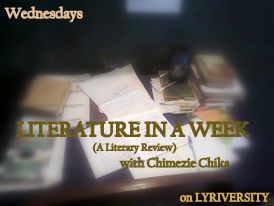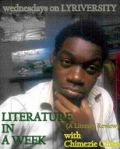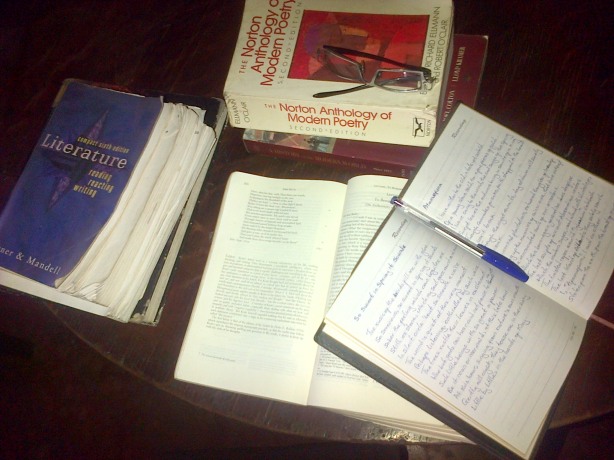by Chimezie Chika
I
Finding Q-dance Centre was what drove me onto the streets of Lagos
that morning. I felt something leap in me when I saw throngs of people
milling into the streets from the thousand avenues and nooks like
ants, saw yellow buses hop by, and their conductors howling in Yoruba
for people going to Mile 2, Mazamaza, Festac. Maruas trotting like
hungry dogs. Hawkers screaming. On the pavement, a bend-down-select
book vendor. I bought a book.
II
The bus left me at Tejusho market, at the corner of the modern
shopping complex. A kind tall mallam in a white skull cap directed me
to the rail line where I had to wait, with other people, for a snaky
rickety train pooh-ing in agony to pass by. The Okada I entered there
dropped me off at 194 Herbert Macaulay—a tall edifice with a blue
façade.
I was the first to arrive that day but, ironically, I would become the
prize-winning latecomer for the rest of the workshop. I was not really
looking at the young boys and girls who were cleaning up; I was
thinking about my not having had a bath that morning. Chidimma came.
She is a colleague at IMSU. We talked a little and then Basit came.
Basit—the smiling talker. He was silent that morning. The rest came.
III
I was struck by how young we all were. How our eagerness was moon in
our eyes. Eagerness is a character that has resonated with writers for
generations. We write it into our blood. Did I hear Dami?—everything I
say is subject to your personal acceptance; I mean, you mustn’t take
me seriously.
Dami: white-smiling all over the place, talking: medical doctor at
day; writer at night. Did I—or did I not—imagine him bending over
writhing patients—(psychosis, neurosis, Freud)—at day; sitting quietly
in a room and clanking away at his small laptop, the screen lighting a
limited vicinity in the dark. I think of Chekov, Ekwensi, Imasuen, and
all clinical people who find time for literature. There is something
about writing that erases professions.
My muse had long become this gathering of twin souls. I had not
thought of those ancient Greek scions of the imagination. My Aphrodite
is that amber-lit room; my Bacchus, that water bottle.
IV
Ukamaka, in all her resplendent beauty, was, to my surprise, down to
earth. Qudus was passionate about inspiration. Mazi was so engaging. I
did not think these people had any drab illusions about what they do.
They were proud of it. Loved it. We were quiet and they talked. We
were quiet and drank in their wisdom. Some people are not talking
here.
V
I wonder if I mentioned Socrates, the Kenyan brought-up who somewhat
acted like his Greek namesake. Socrates, adupe!
VI
Lagos is so big. The maze of roads is confusing; snaking over each
other; bigger roads eating up the smaller ones. Brigdes. Too many
bridges. Under Bridge. The conductors gabble their words; so you might
miss your way.
I found myself in Ebutte-Meta, the railway headquarters. I walked
through that gigantic railway establishment, the industries associated
with it—they were in forlorn shambles.
Everyone was already seated when I arrived at the Centre for
Contemporary Arts. Punctuation. Dami reads his story to illustrate.
Tricky story. I think of John Barth, William Gaddis, and Pynchon.
Ukamaka reduced every literary equation to the simplest understandable
unit. She was so eager. You could see it in the way she talked, the
way she tried to build upon every point made. Marlon James—Point of
View: technique. Exercises: wonderful. Tolu (always smiling) wrote: I
am sitting here, hungry. I doubt if I will remember everything Dami
said in the next 24 hours.
I walked home with Chidimma.
VII
There are some people you know only on Facebook. Uzoma was so quiet,
his chubby cheeks hardly moving. His eyes changed shades. Something
was going on in that head; you could tell.
Memories of the third day are muddled up. Maybe because I am writing
three days after the workshop, or perhaps, because I scooped some,
raw, and ate right there and went to toilet.
It was a Sunday and, on the way, I bought five books from a roadside
vendor. Winesburg, Ohio; VS Naipaul; Michael Cunningham; Junichiro
Tanizaki; others. The talk progressed seamlessly. Ukamaka, Mazi, the
charming Bola.
It did not end with any elaborate fanfare. But—but then we were all
happy. Something had happened to us: writing. For people to meet,
actually, in conducive Art-mosphere, to talk about writing is
uplifting. So we can now go home and sit at the desk and bleed? The
personal thing is that a picture—a horizon—has been enlarged.
I snapped a ‘wefie’ with Ukamaka, Dami autographed Clinical Blues for
me; I held a short discourse with Mazi. One thing about these people
is their lack of airs. They are so humble and helpful. I think of
Dami. Thank you. I thank all of them.
VIII
After everything, did we not sit down and talk? Did we not discuss
literature; our interests? Uzoma, Gbolahan, Basit and I. We shared
files, movies in the fore-room, talked about our work, of continuing
the Writivism ’15 spirit. Talked about Chimee, Olisa—Basit wants to
meet him. I said to Basit, You are so exuberant. Suddenly, we all
laughed. We started talking of how we saw each other at the Workshop.
Evening was descending, we would go. Downstairs, Uzoma and Gbolahan
climbed a bus to Ojota. I walked down Macaulay street with Basit. Then
he crossed the road. Goodbye, Chimezie. Goodbye, Basit. Buenos. We
shall meet again in the place where there is no darkness; someday,
somewhere, someplace, in this vast city of bridges.
Writivism2015.








